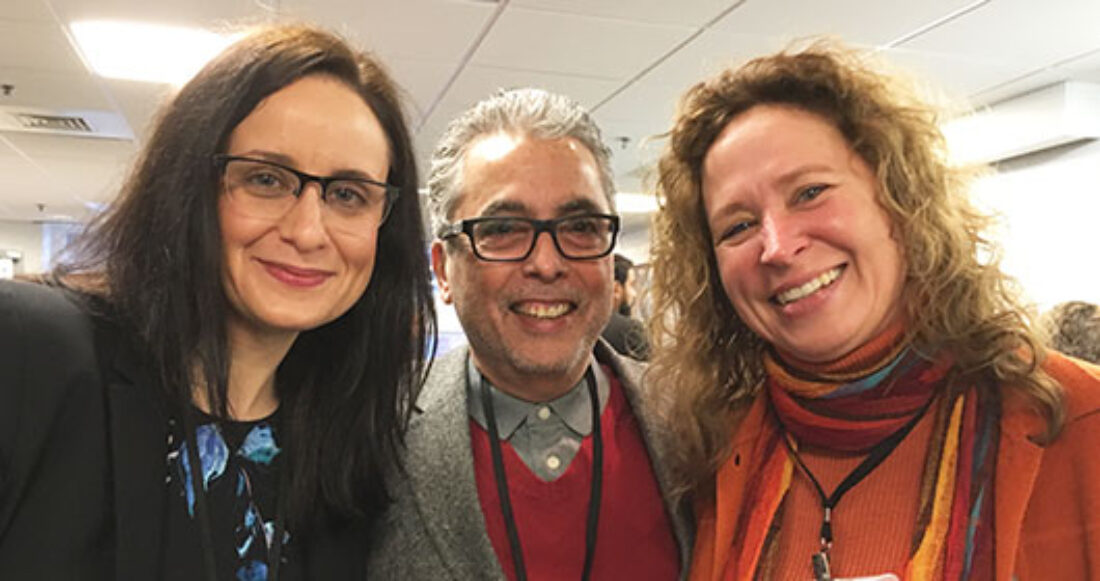Five Questions with Casey: Dennis Campa Talks State-Based Advocacy

As the Annie E. Casey Foundation’s associate director for state policy reform and advocacy, Dennis Campa oversees two national networks of organizations: KIDS COUNT and State Priorities Partnership. Both networks aim to improve the lives of vulnerable kids and families through state policy reform and advocacy.
Campa began his career in Texas, as an adult probation officer managing a specialized caseload of heroin addicts. He worked in human services at the city, county and state levels for 38 years before retiring in 2010 as director of the San Antonio Department of Human Services. During this time, Campa played a key role in Casey’s Making Connections initiative in San Antonio and was named a Casey Children and Family Fellow.
Campa earned a bachelor’s degree from the University of Texas at Austin and a master’s degree from the University of the Incarnate Word. He is a military Veteran, having served 4 years with the Army and another 23 years with the Texas Army National Guard.
In this Five Questions edition, Campa talks about the importance of state-based advocacy and how the Foundation uses national networks to drive state policy reform.
Q1. Why has the Foundation chosen to make state-based advocacy a priority?
Our goal is to inform the people making the decisions that affect child and family well-being. States invest more than one trillion dollars annually in services for children and families—a much bigger contribution than the federal government. So, if we want to fulfill our mission of ensuring a bright future for all children in America, states are a strategic venue.
Q2. Why are national networks important? And, beyond creating these networks, how does the Foundation support them now?
These national networks provide a vehicle to push a policy agenda forward in every state, the District of Columbia, Puerto Rico and the U.S. Virgin Islands. By pushing in unison, we build a capacity that is much larger — and more effective — than if these organizations were operating alone.
The Foundation supports these networks by providing opportunities for them to learn and share strategies and challenges. This year, one area we focused on was using data and communication to inform policy to address racial equity and inclusion. Data alone doesn’t influence people — you must transform data into stories that move people to act.
Q3. Talk about the KIDS COUNT network and the State Priorities Partnership. What’s the benefit of investing in both?
The KIDS COUNT network is a group of state-based child advocacy and research organizations that serve as KIDS COUNT leaders in their states. These organizations use data to explain what is happening to kids and families and to promote smart policies aimed at improving child and family well-being. The network addresses a host of issues, from early education and expanding opportunities for young people to improving workforce policies for parents.
The State Priorities Partnership, formerly known as the State Fiscal Analysis Initiative, works to ensure that states have an accountable and equitable budget process. A state budget is the true expression of public policy and should create engines of opportunity for vulnerable populations — not balance tax cuts and budgets on the backs of low-income children and families.
These two networks complement each other and both need strategic communication to demystify the connection between state policies and child well-being.
Q4. Talk about the policy environment in states today. What are the challenges and opportunities in making kids a priority?
People believe in their hearts that kids should be a top priority. If you talk to any governor or state legislator they will all say that. But funding for education, child welfare and juvenile justice hasn’t caught up to pre-recession levels. Last year, states increased their budgets by more than $12 billion, yet still spent less than before the recession and not enough to meet the magnitude of the need.
In terms of opportunities: Our networks must compel states to use data and community voices to inform their budget and economy. And one challenge we face is the call to cut personal and corporate taxes. There is no evidence that this approach has worked to stimulate jobs or the economy, and it jeopardizes critical child health, education and human services programs.
Q5. What does every child advocacy organization need to succeed in moving state policy forward?
First, you need to have compelling, unbiased, irrefutable data and analysis to inform people of the current condition of children in their states. You can’t rely on lengthy reports. You have to demonstrate the real impact of families not getting what they need versus those who do so that policymakers understand how their decisions are impacting people in their communities and districts.
You also have to be a learning organization and communicate with other organizations in the network. The network only thrives if people talk and collaborate to do better work.






